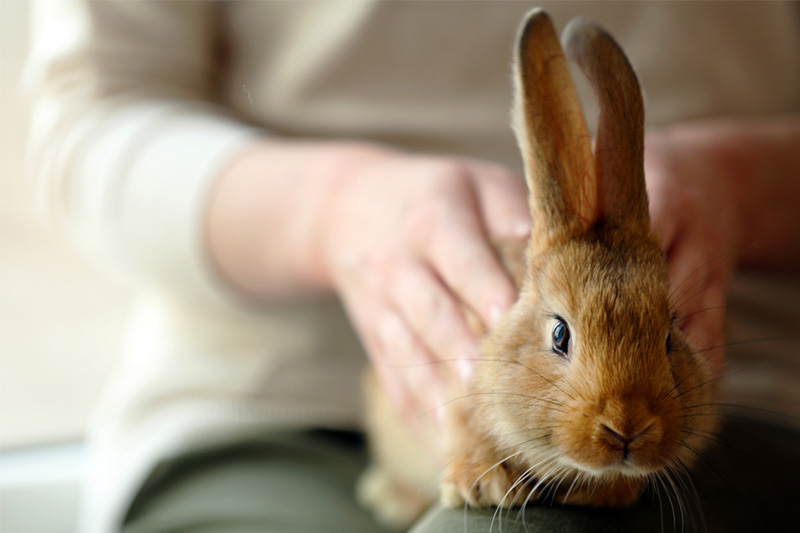As your rabbit grows older, they’re more at risk of obesity. Keep your rabbit healthy by maintaining their optimal weight.

Like humans, rabbits are often prone to health issues as they age. It’s up to you to ensure that, particularly when they are older, they’re getting the best care so they don’t run the risk of health conditions and can live a happier, longer life. The point during a rabbit’s life that they become senior depends on their size and breed, but it’s generally between the ages of six and eight years old.
Obesity in senior rabbits is very common and can have serious effects on your rabbit’s health. Obesity can lead to heart disease, liver disease, respiratory issues and skin infections. It will also put your rabbit at higher risk if undergoing surgery. Talk to your local Greencross Vets for guidance about the weight your rabbit should maintain.
Signs of obesity
It’s good to regularly check the shape of your rabbit – under all that fur it’s harder to tell whether their weight is fluctuating. You’ll be able to get a clear picture of their health by running your hands over their stomach and body. An obese rabbit will show reluctance to move or have difficulty when moving. They will show changes in behaviour, they may sleep longer and become less active in their hutch.
Your rabbit’s coat may appear dull, they may lose hair, and they may get sore hocks. Sore hocks usually affect the bottom of their hind feet and lower back legs.
If your rabbit is obese, they are at higher risk of contracting diseases and infections. Common signs your rabbit may have an ailment like heart disease or a respiratory infection include coughing and sneezing, nasal discharge or loss of appetite. If your rabbit is showing any of these symptoms, don’t hesitate to refer to your local Greencross Vets.
How to avoid obesity
Keeping your pet’s weight healthy starts with their diet. Senior rabbits should be fed timothy grass hay and oat hay – it will make up at least 80% of their diet. Pellets should be limited to only 5% of their diet. They also need several servings of vegies. Choose the darkest, leafiest greens possible as these have the most nutritious value for your rabbit. On top of this, dark yellow and orange vegies will keep your rabbit full of the vitamins and nutrients they need.
Monitor your rabbit’s weight carefully, weighing them once a week. This will keep you on top of their health and allows you to adjust how much you’re feeding them according to their size.
Of course, and this is the easiest task, give your rabbit the love and attention they adore. Affection never fails to improve your rabbit’s happiness and keep their stress levels low. Let them out of their hutch for a run indoors and take them outside.
For more information on rabbit health and what your pet should be eating, head in store and ask your local Petbarn team member.
